Hot Mikado is a musical comedy, based on Gilbert and Sullivan’s The Mikado, adapted by David H. Bell (book and lyrics) and Rob Bowman (orchestrations and arrangements). After researching the 1939 Broadway musical, The Hot Mikado, and being disappointed at the amount of surviving material that they could find, Bell and Bowman created a new adaptation, Hot Mikado. “Not much remains, however, of the 1939 show’s African-American emphasis, save the cool hipster style which even then was beginning to be eagerly pre-empted by Americans of every ethnicity.”
Their original production ran from March 18–July 27, 1986 at Ford’s Theatre in Washington, DC, where Bell was artistic director. Bell directed and choreographed the production. The musical also had an early Chicago production, among other revivals and ran in London’s West End in 1995. It has enjoyed many additional productions in North America and the UK since then. In 2010, it ran at the New Repertory Theatre in Watertown, Massachusetts and the Drury Lane Oakbrook Terrace Theatre in Chicago. International productions have included a long-running Prague staging and a run in Dublin.
The plot of Hot Mikado does not stray far from the Gilbert and Sullivan original, with a similar satiric tone. Katisha is played as a vamp. Ko-Ko is characterized in a manner similar to such characters as Sergeant Bilko. An extra male character, Junior, is added, who takes some of Pish-Tush’s lines and sings the solo in “Braid The Raven Hair.” The show is set in Japan in the 1940s, with suggested settings and costuming combining Japanese design with American 1940s design. The set uses Japanese architecture, executed in the textures of The Cotton Club (neon, brass, mahogany). The costumes include zoot suits, snoods, wedgies and felt hats, executed in the colourful silk kimono textures of Japan.
The score uses much of Sullivan’s original music but is reorchestrated using 1940s popular musical harmonies and arrangements and a wide range of styles, including jazz, hot gospel, blues, rock, Cab Calloway swing, and torch songs. The ‘Three Little Maids’ sing in Andrews Sisters’ style. Many of the songs of Hot Mikado have the same name and melody as in The Mikado, but often have a twist. For example, the song “I Am So Proud” has the same melody for the verses, changing only towards the end, where it folds into a more jazzy round. The dances called for include the Lindy Hop, tap-dancing, the jitterbug and other 1940s dances.
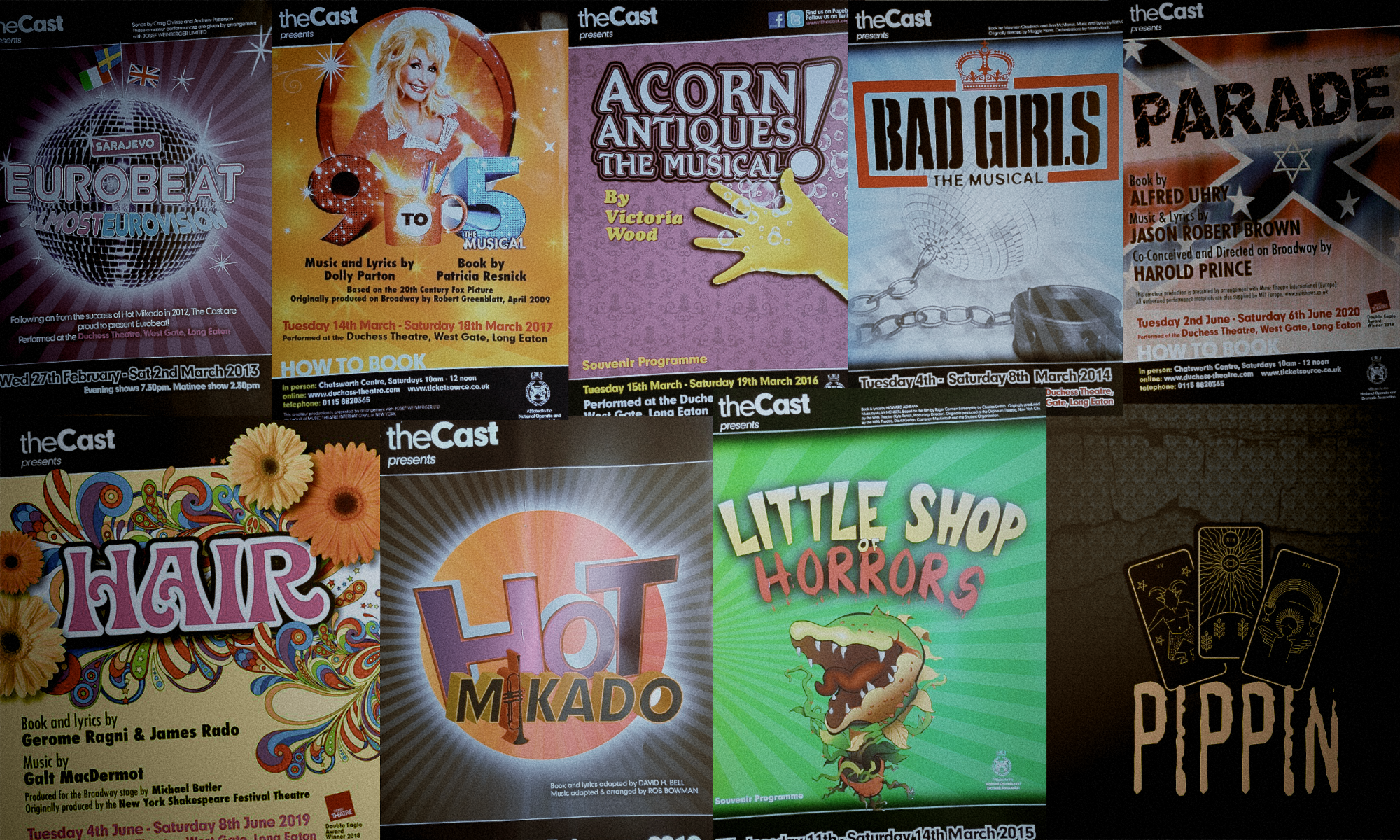
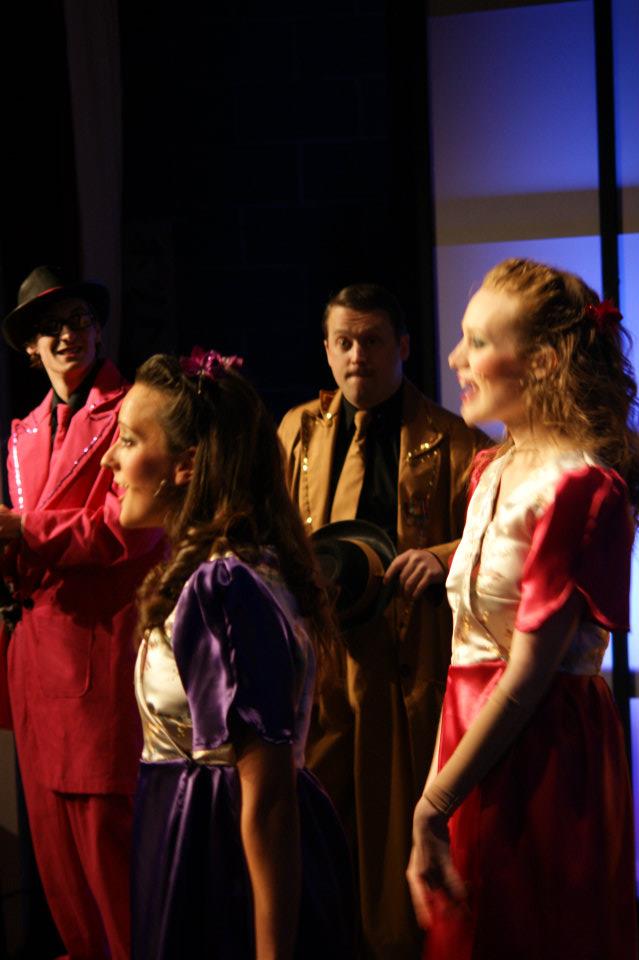
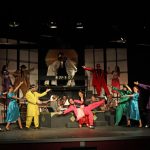
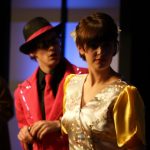
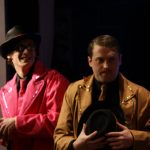
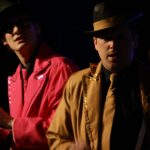
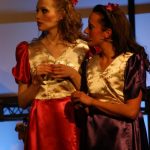
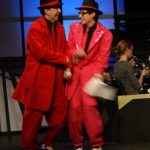
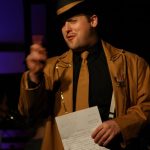
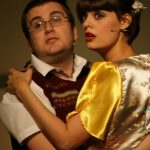
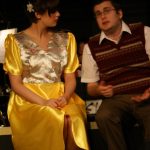
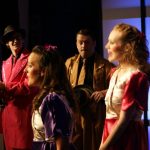
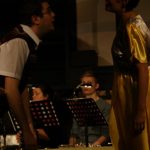
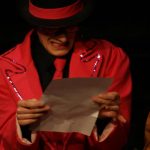
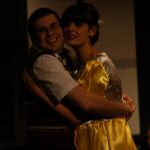
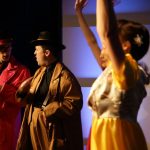
2 Replies to “Hot Mikado – 2012”
Comments are closed.